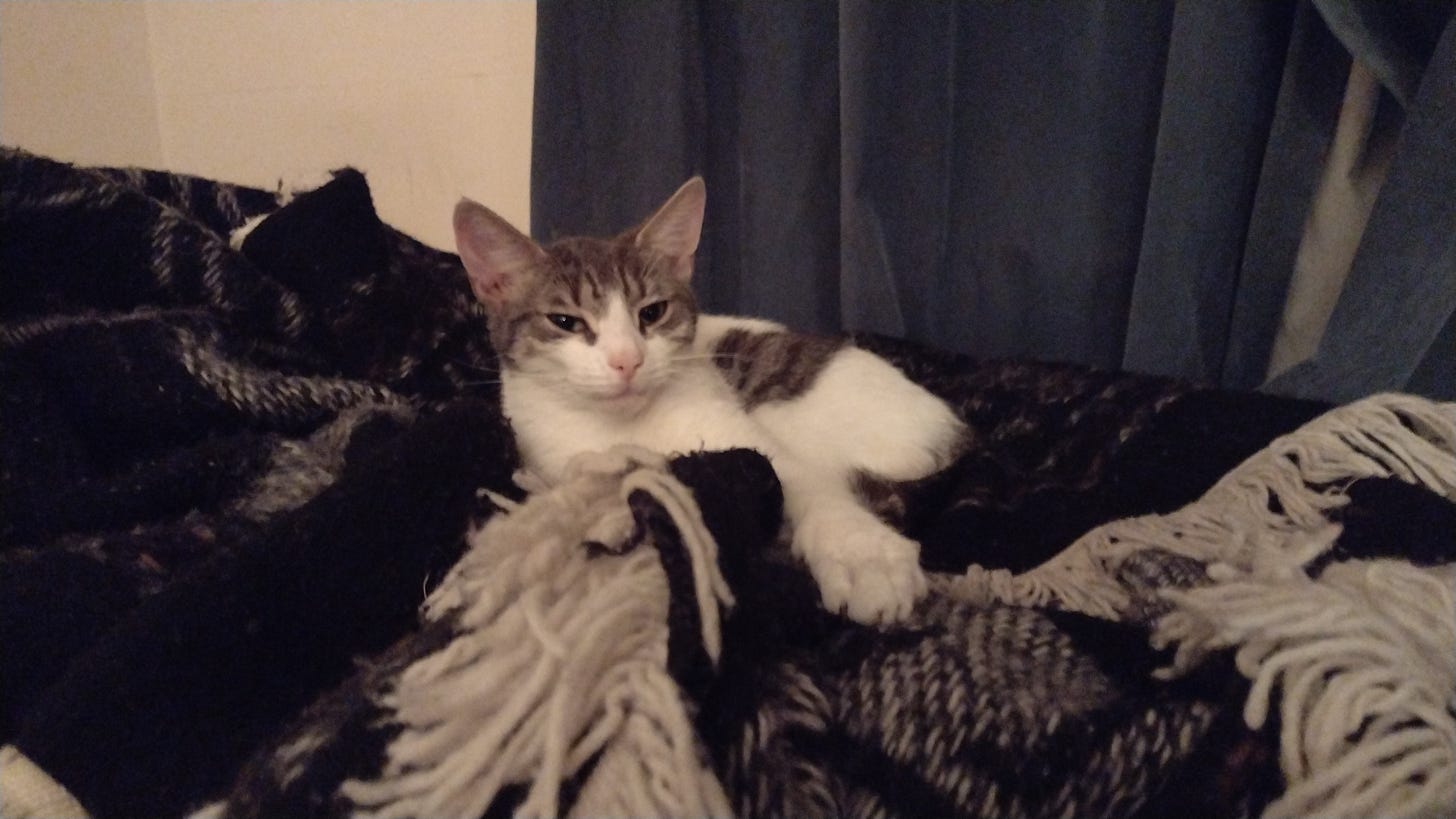on self-pity
I acquired a cat recently.
Unlike my last, vocal cat, she rarely miaows, so I have to keep checking the outside door to see if she wants to come in; even in foul weather she will sit quietly outside in the rain, waiting for me to think of her. At the most, she makes a kind of truncated, second-long miaow, more like a burbling sound; she often makes this noise when I open the door or as she jumps onto my bed or desk (it sometimes seems that the burbling acts like a propulsive force).
I dislike conventional, drawn-out miaowing, as it sounds too much like a baby crying. I recall, somewhere in Cormac McCarthy’s recent novels, The Passenger and Stella Maris, a character wondering why babies cry - the act of crying presupposes the absence of hostiles (who would simply kill the baby) and the presence of at least one person who would care, and succour the infant. McCarthy remarks that babies crying suggests an unfounded faith in goodness, as if babies are born assuming that those about them will care for them - which is quite an assumption.
Reading older books, e.g. Ernst Jünger’s Storm of Steel, I’m stuck by the lack of self-pity, of complaint. While I’m sure WW2 and WW1 veterans had something like post-traumatic stress disorder, it wasn’t the fashion to talk about it; nobody whined. Men like Jünger were more like my cat, who can sit in the cold and the wind for hours without a sound, waiting.
Self-pity only makes sense within a therapeutic culture, where all values of human excellence are inverted, so the lowest of the low is the most exalted - precisely because he is dysgenic, dysfunctional trash. In our modern world, self-pity and performative misery are the norm - because they do not attract predators but rather social workers, cooing journalists, grinning politicians. In this sense, self-pity is akin to miaowing, which always struck me as very cold-blooded and manipulative, as if at some point the Cat Soul evolved the miaow to mimic a baby’s cry, as a way to gather resources & attention from gullible humans.
Outside of such an artificial and unsustainable societal model, self-pity is not merely useless; it is suicidal. The natural state of things is largely devoid of pity; and where mercy and generosity are granted, they are strikingly unusual, and highly unpredictable - a far cry from our society, where pity has become a bureaucratic process (one denuded of actual compassion, as if there is a fixed quantity of altruism, and universal enforcement merely thins it out, like a drop of gin diluted with gallons of tonic water).
There is something theatrical about self-pity: I can’t imagine, were I the last human on this planet, feeling sorry for myself - even unvoiced self-pity seems to presuppose a sympathetic audience, before whom one performs, trotting out miseries like a Punch and Judy show. Self-pity is a kind of narcissism, setting oneself up as something to be admired, even if only negatively; but always with the goal of attracting resources (tangible or not) from others.
A few weeks ago, I was talking to a guy who used to be in German Special Forces; I was suffering what I’ve now learnt is pleurisy, and excused my occasional gasps of pain thus: “Don’t worry. It’s not serious, it’s only pain.” He just chuckled, amused.



I never saw a wild thing sorry for itself. A small bird will drop frozen dead from a bough without ever having felt sorry for itself - as Lawrence surmises but, indeed, one watches the beasts of the forest about there business in all weather without ever the sense that they feel the weight of their burden.